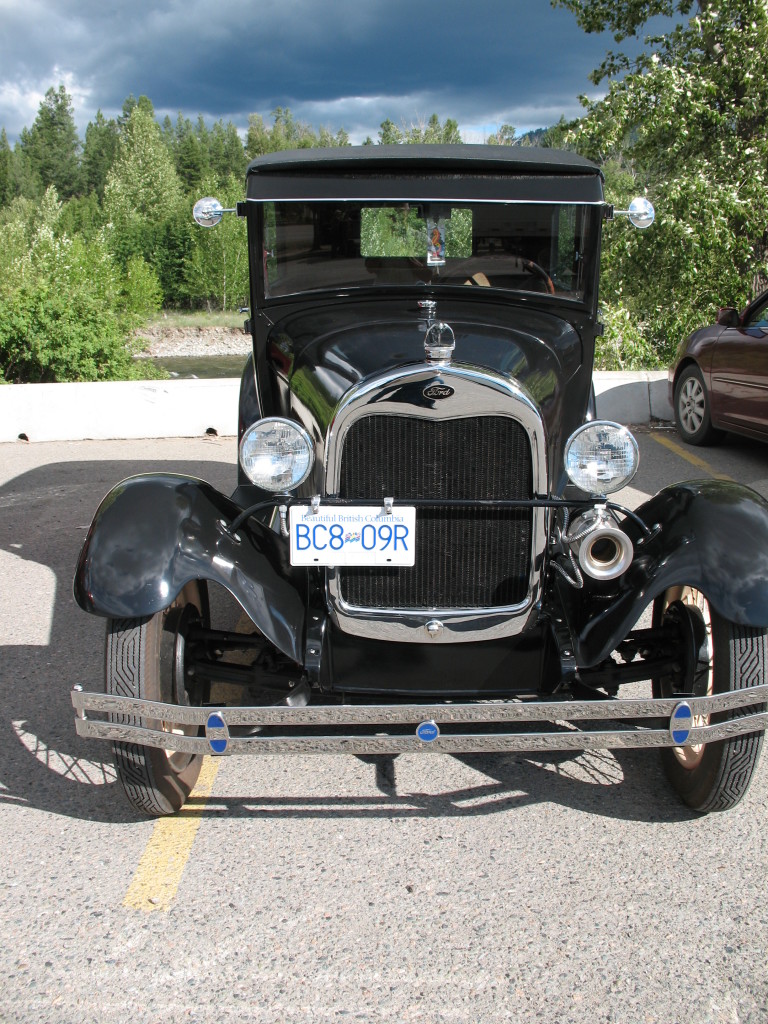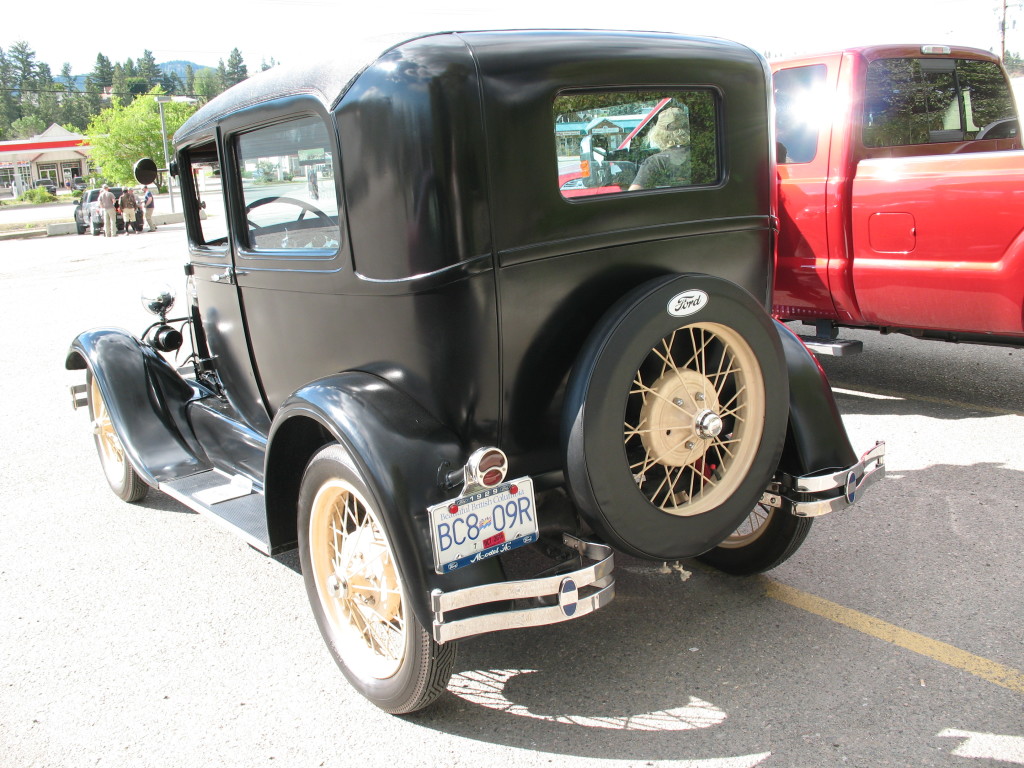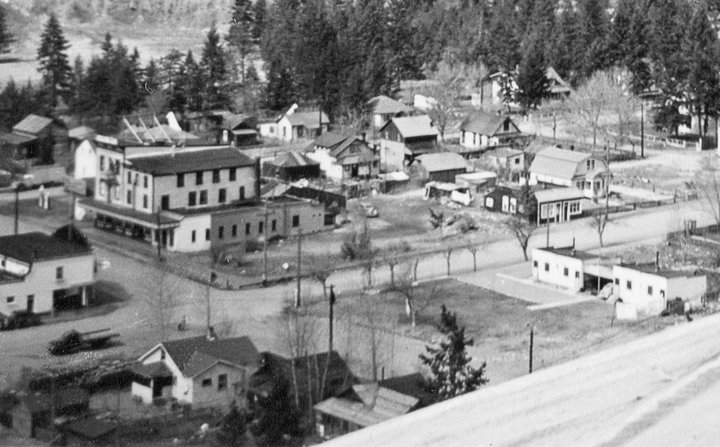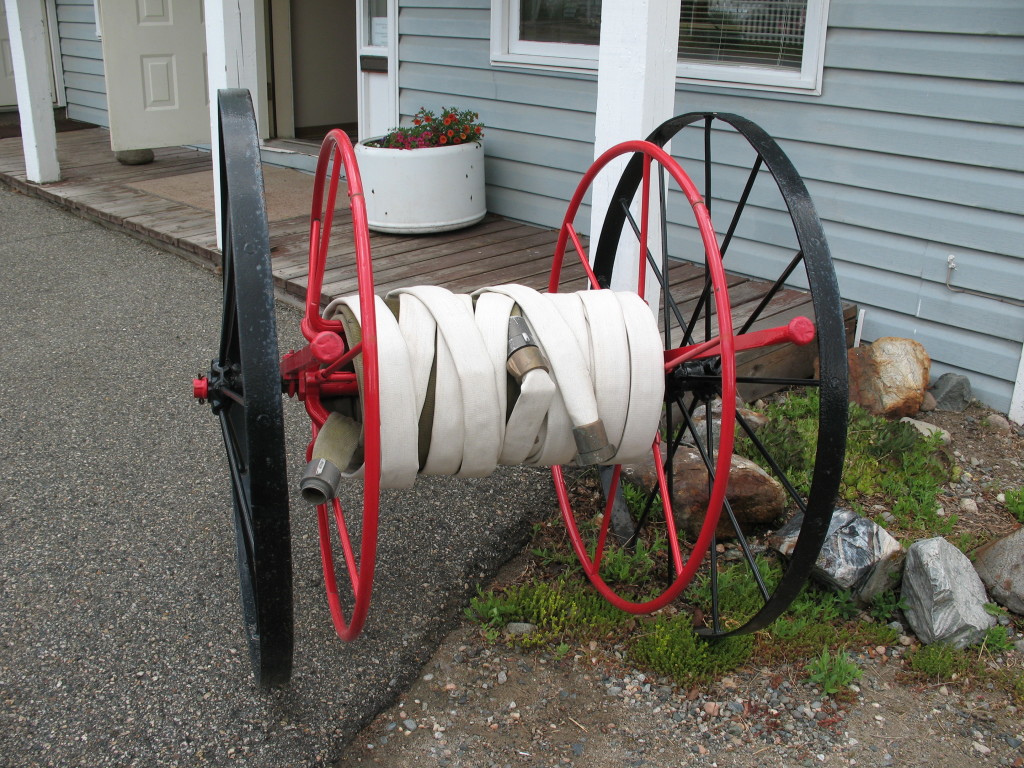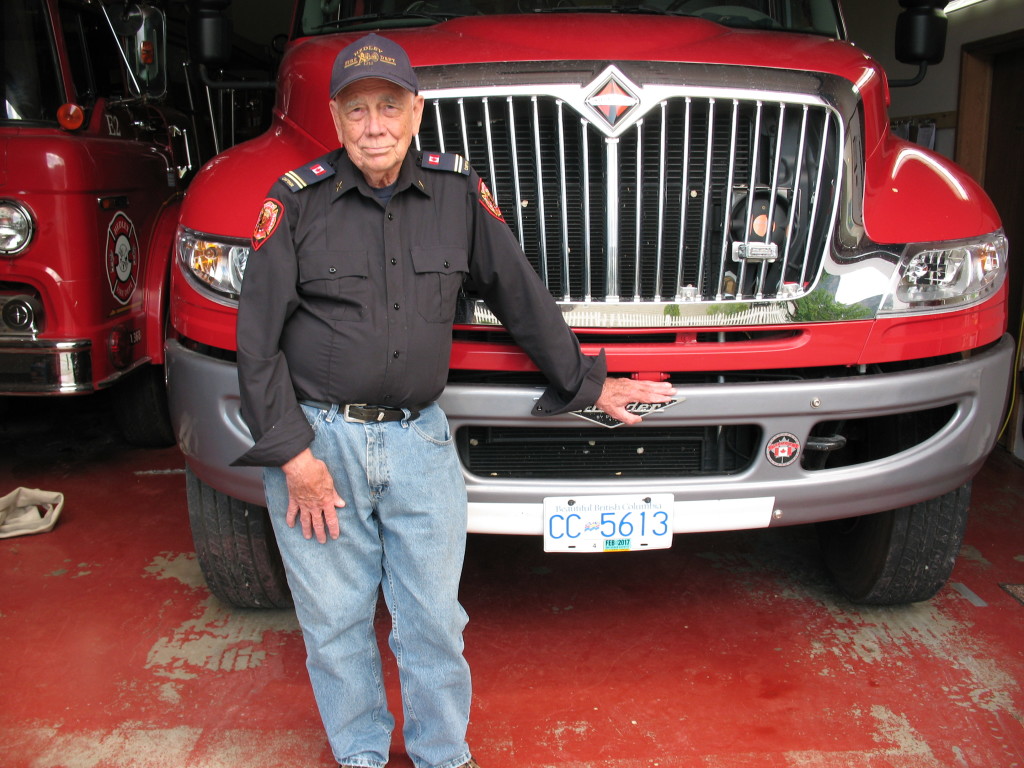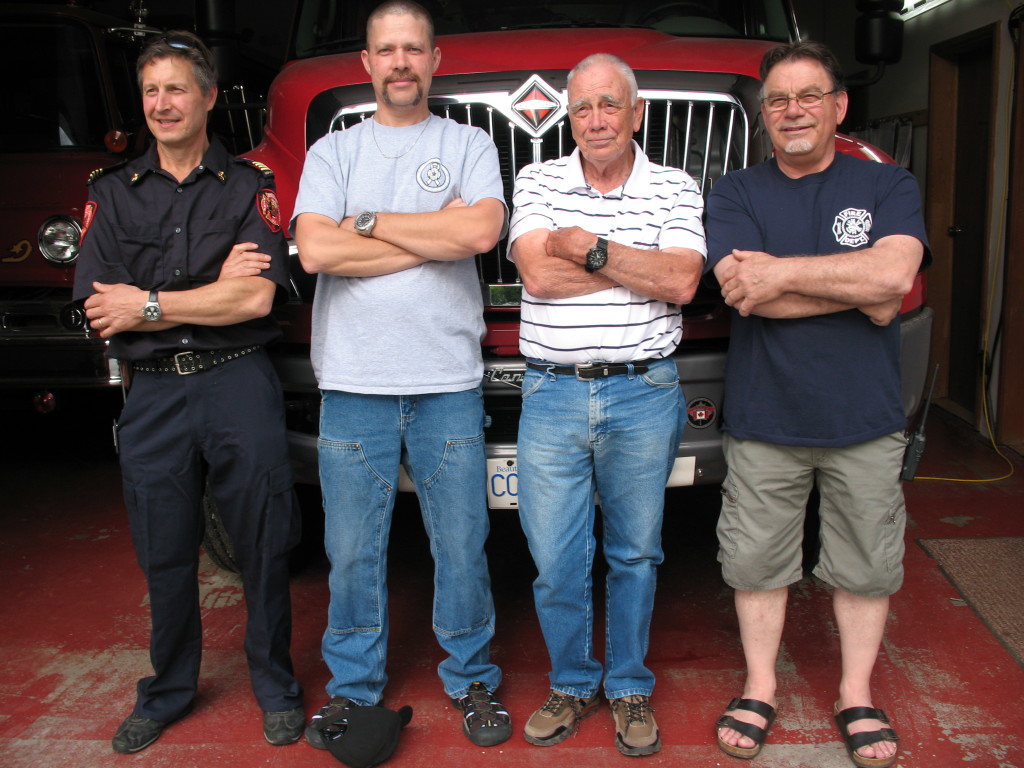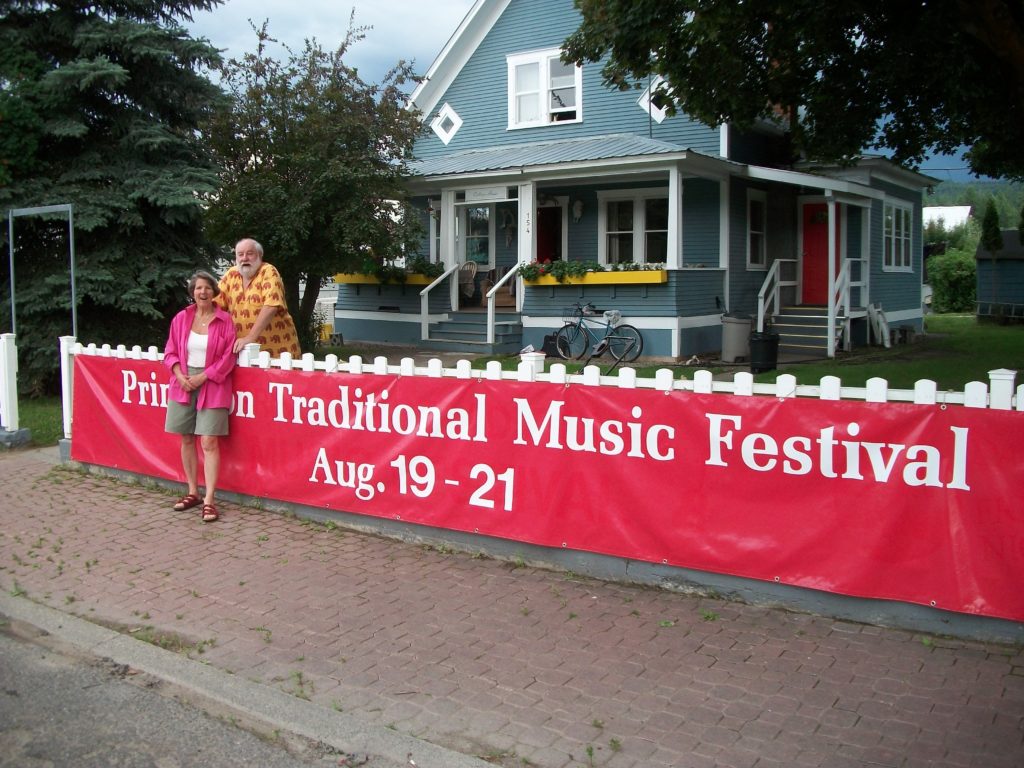
Jon Bartlett and Rika Ruebsaat don’t receive even token remuneration for the hundreds of hours and enormous energy they devote to the Princeton Traditional Music Festival. Listening to them talk about the event and the underlying sizzle of excitement in their voices, Linda and I realized there must be compelling reasons behind their uncommon dedication. Jon gave us at least a glimpse of this when he said, “We want to recover the traditional music of B.C. Music that reflects the experiences of men in logging and fishing camps, of miners, Irish immigrants, French Canadians, and many others.” For them much of the reward stems from the joy they see in musicians and attendees.
Both Jon and Rika are immigrants to Canada. Rika came as a child in 1952. Jon arrived at age 21 in 1969. Their pre Festival lives could hardly have followed a more apt trajectory as a preparation for the present significant enterprise.
As a young woman, Rika’s first career was in theatre. “I began studying theatre at UBC,” she recalled. “Before I was done though, I quit the program, went to England and hitchhiked around Europe. I connected with a bilingual theatre group and we performed in Europe and Canada.” For her it was “an absolute passion, totally engaging and transformative.”
Jon had been a paralegal in England, frequently investigating railway accidents. He also did pre-trial court work. On arriving in Canada he initially followed a similar career path. Later he supported himself, in part, by singing in Gas Town.
Each had a consuming interest in music and this led them independently to the Vancouver Folk Circle. It was here that their relationship and collaboration began.
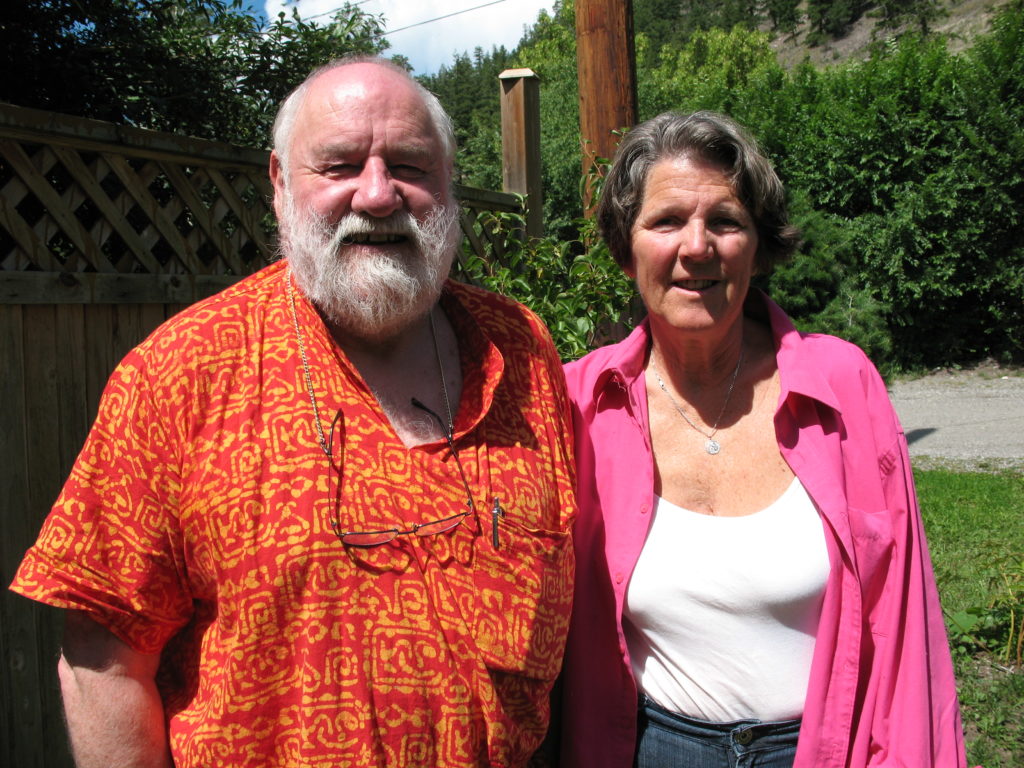
“Initially it was a relationship of respect and suspicion on my part,” Rika said. “Jon was demanding and challenging. You couldn’t just say something. He expected you to explain. I found that attractive.”
For Jon, Rika met an important expectation. “I couldn’t be with someone who wasn’t political,” he said.
Their story suggests they were restless, always seeking involvements they considered important.
“We thought there would be a big change,” Jon said, “a revolution.” He meant a revolution in the thinking of Canadians. “We were hoping for people to wake up and realize we need to work together to make the world a better place. We were looking for decency in public life. We wanted people to accept responsibility for their own actions and not just fall into something. To make a choice. The revolution didn’t happen.”
Combining their talents they forged a potent partnership, performing on stages across Canada, including school class rooms. For some time they sang and told stories “from around the province” on the CBC radio program, “North by Northwest”. They also wrote 2 books. One was short listed for the prestigious Roderick Haig- Brown prize and also the Lieutenant Governor’s Medal for Historical Writing.
They settled in Princeton and in 2007 were invited to perform on the Racing Days Weekend. “We had so much fun,” Rika remembers, “we wanted to do a festival. Over the years we had connected with a world wide circle of musicians. We invited our musician friends to come.”
Although they don’t get paid, over the years their friends have responded enthusiastically. “We do fund raising,” Jon said. “Also we receive some support from the town, the Gaming Branch, the RDOS and the federal government, but not enough to pay performers. We provide billets and we also give them food vouchers to local restaurants.”
“For the musicians, it’s a total immersion,” Rika observed. “They love it. It provides an opportunity to perform music that comes from the community, the kind of music you make with your family. It’s music you might hear through the wall.”
Linda and I were deeply impressed by the sense of mutual respect, the commitment and the incurable optimism we saw in Jon and Rika.. They were lavish in their praise for the committee that has worked with them since early this year to make the coming festival a huge success.
Although it’s named the Princeton Traditional Music Festival, it really is for the entire Similkameen Valley. Actually, the province and beyond. There will be at least 140 performers, joyfully singing, playing instruments and telling stories. It’s a major musical event, running from August 19 to 21. Admittance is free. A great gift to us all!




